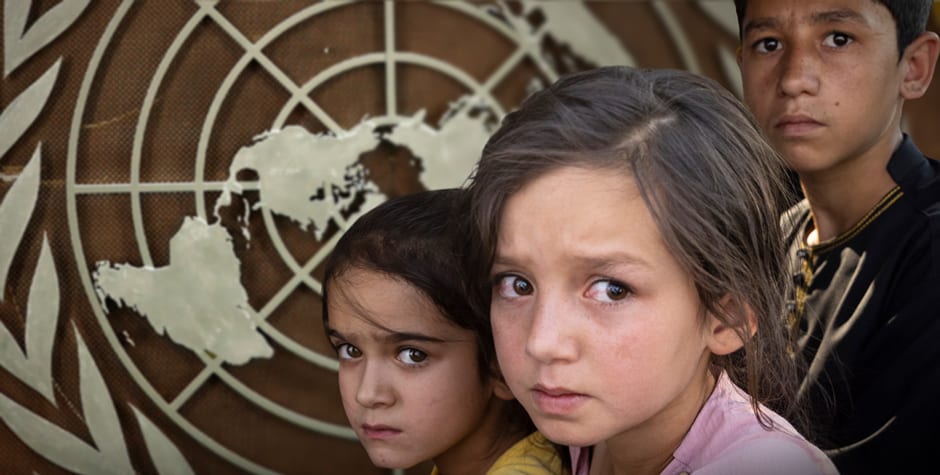ACLJ Sheds Light on the Scourge of Human Trafficking at the U.N. in Four Filings
Human trafficking is a global problem that impacts every country. The U.S. State Department estimates that there are currently 27.6 million human trafficking victims all around the world. Human traffickers prey on all types of individuals, as men, women, and children are all targeted for exploitation. The most common form of human trafficking involves sex trafficking and accounts for approximately 79% of all trafficking victims.
As part of the Universal Periodic Review (UPR) at the U.N., we just filed reports on Mauritius, Senegal, Malta, and Belize, shedding light on the scourge of human trafficking.
In Mauritius, it is estimated that more than 1,000 people are living in the country as modern slaves. Many of these victims are trafficked to the country from East Africa and Madagascar. Children, in particular, are targeted and trafficked for commercial sexual exploitation. In our report, we highlighted stories of individuals who were lured to Mauritius with the promise of good-paying jobs, only to be forced into prostitution once they arrived. For example:
On March 2, 2023, a human trafficker brought a thirty-year-old woman to Mauritius with the false promise that he was going to pay for her beautician classes. However, once she arrived in Mauritius, she was sexually abused by her trafficker, and he confessed to her that she would not be a beautician but instead be exploited for sex and that she had no choice. On March 14, 2023, she was able to file a complaint with the police, and the man was arrested and charged with human trafficking.
In our report for Senegal, we highlighted how children as young as six are trafficked by Quranic teachers and are exploited for the money that is to be gained from child begging. This practice preys on the poor and vulnerable because Muslim religious leaders, known as Marabouts, promise parents that they will take care of their children and teach them the Quran. However, these parents are unaware of what actually happens to the children, as the children are often exploited and forced to beg for money, or else they will suffer physical and mental abuse.
In our report for Malta, we detailed how victims are lured to the country with false promises of jobs, only to be forced into a different job and stripped of their passports. All too often, these victims are women who were lied to and find themselves being forced into prostitution. Tragically, the government is not doing enough to protect these victims, as the number of human trafficking investigations decreased in 2022.
In Belize, women and children both from Belize and abroad are the most likely to be trafficked. In fact, as of February 2023, 65% of the current cases of human trafficking that are under investigation involve female minors. Below you will find just one of the examples we highlighted in our report on Belize:
On October 28, 2021, Jeffery Perez was sentenced to twelve years imprisonment and Petrona Montejo to ten years for charges related to child trafficking and sexual exploitation. This sentencing stemmed from an investigation done by Belize’s Anti-Trafficking in Persons Unit in March 2019. Petrona Montejo was arrested for procuring a child to be sexually exploited, and Jeffery Perez was arrested for child prostitution. This marked Belize’s second successful human trafficking conviction since 2016.
In our reports, we urged these countries to take steps to protect the victims and prosecute human traffickers. To accomplish this, resources and training must be allocated to police and investigators so they can identify victims of human trafficking and provide the victims with aid and assistance. Further, because so much of human trafficking involves trafficking individuals across borders, countries must come together and cooperate in order to put an end to human trafficking.
Join us as we continue to shed light on the scourge of human trafficking and continue advocating for the victims. You can learn more about all the countries we have filed UPRs on at the U.N. here.
